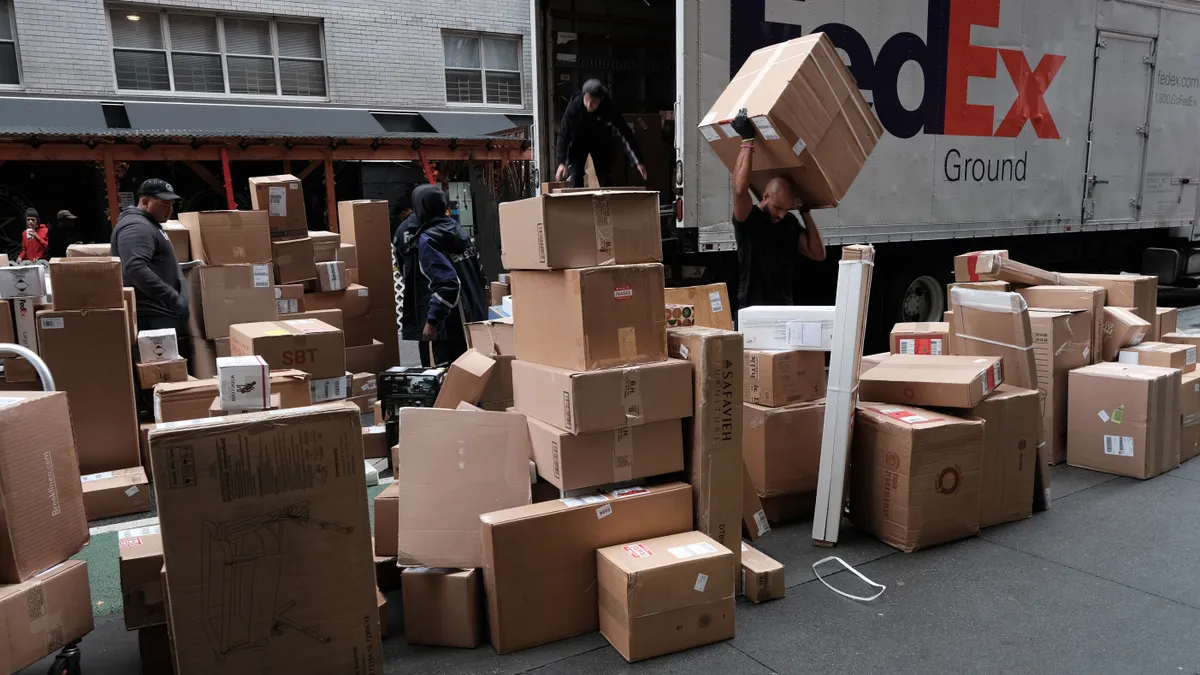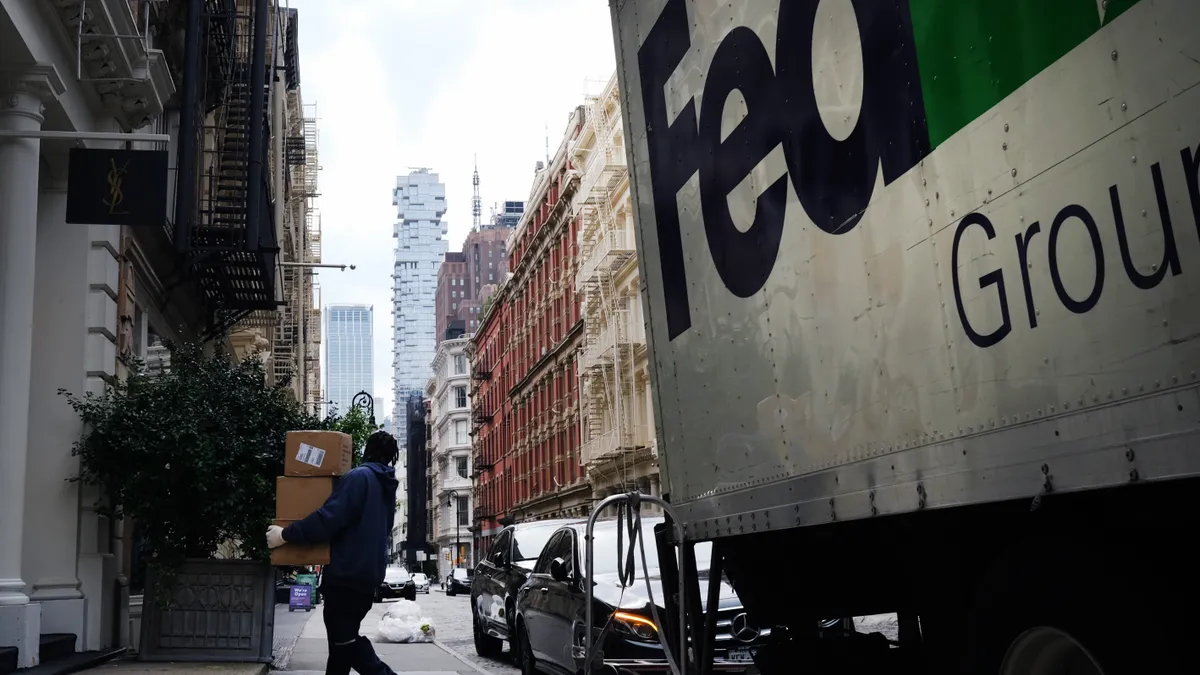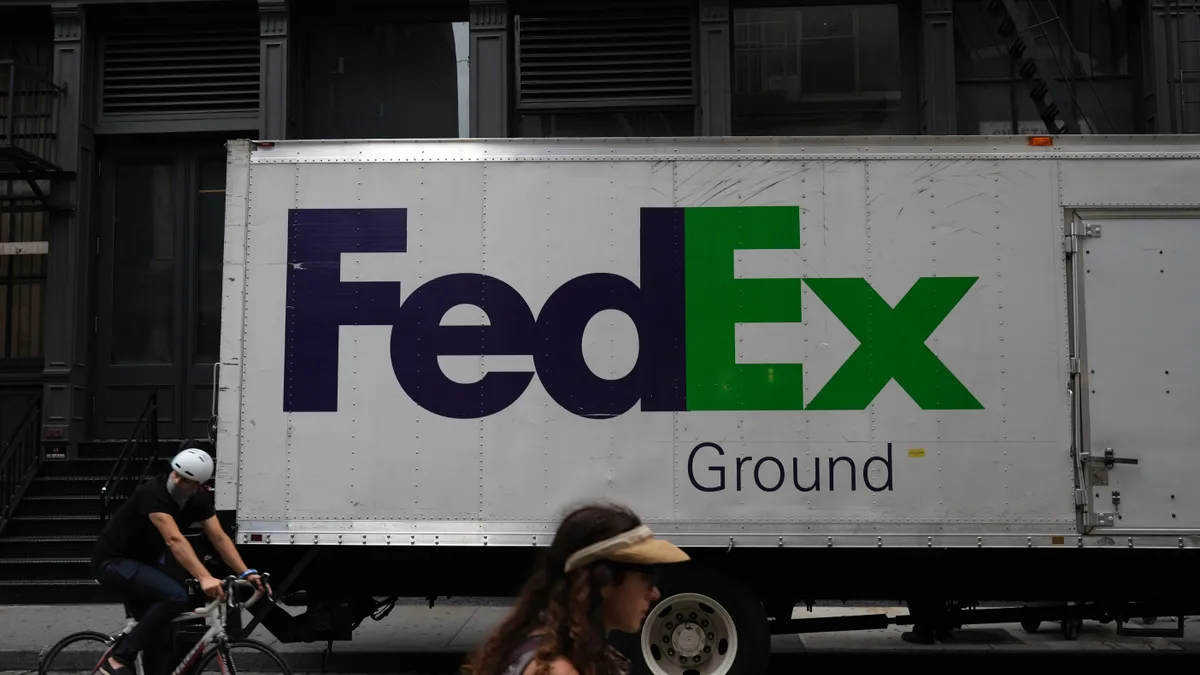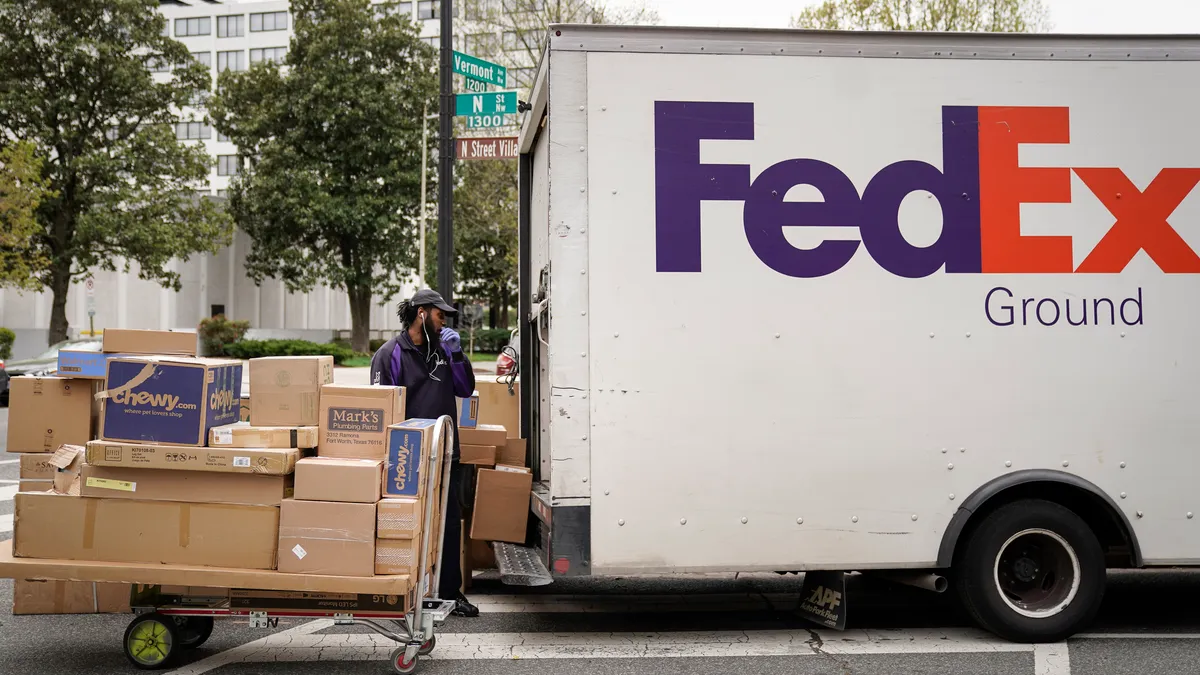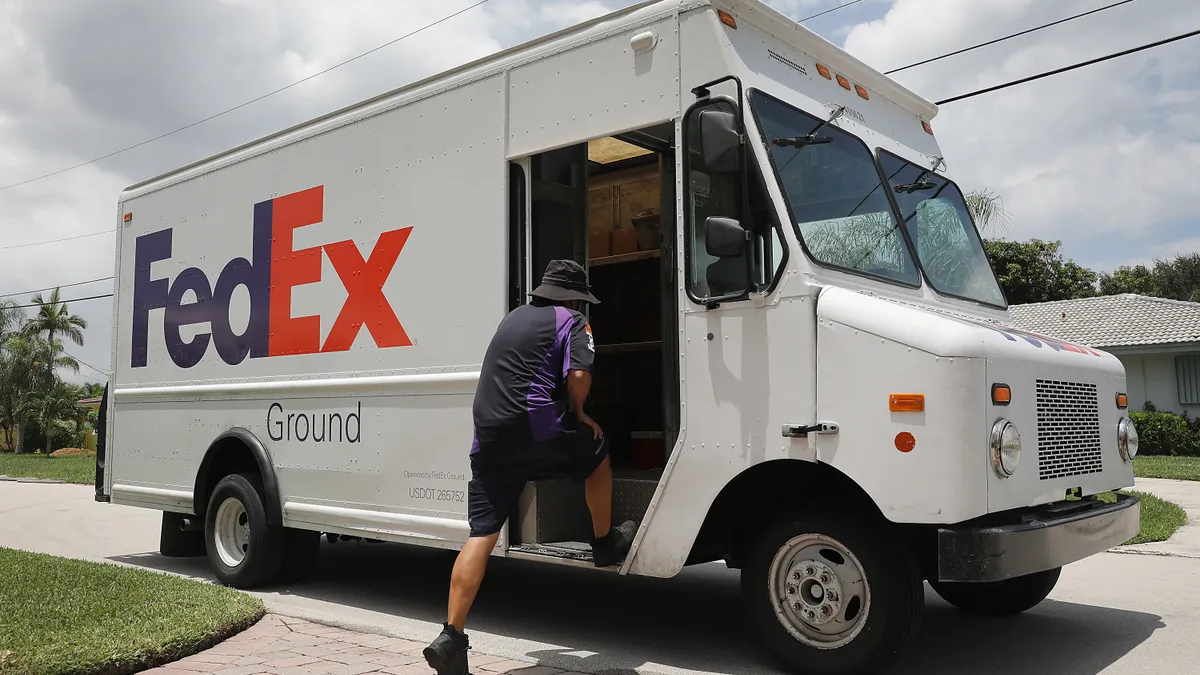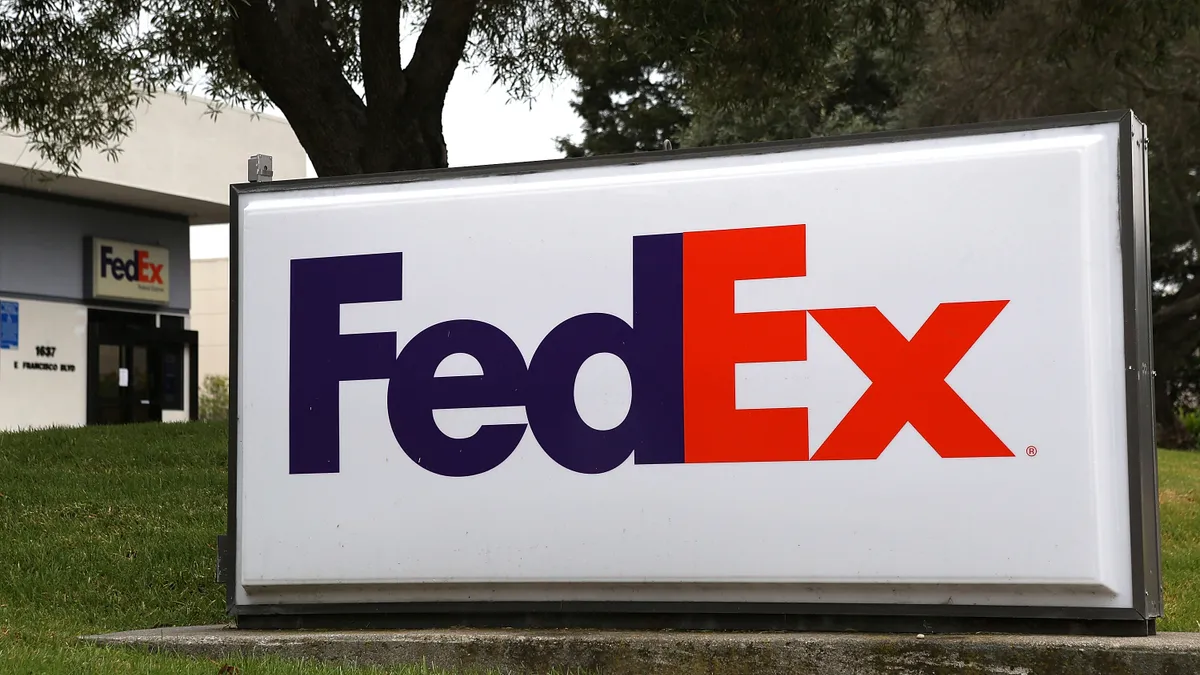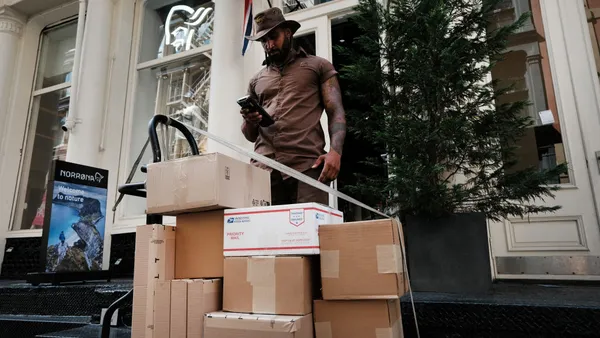Whether or not FedEx Ground contractors agree with Patton Logistics and Route Consultant founder Spencer Patton, thousands listened to his argument on how the delivery giant must change this past weekend in Las Vegas.
Since he sent a letter on contractors' struggles to FedEx leadership in July, Patton, an operator of 225 Ground routes in 10 states, has become the public face of a movement pushing for better compensation to offset raging inflation. Sixty percent of Ground's 6,000 contractors, which provide delivery, pickup and linehaul services for the FedEx operating company, attended Route Consultant's 2022 Contractor Expo, where Patton pushed Ground to end Sunday deliveries and limit short-notice changes.
"I think that there's a lot of contractors that are really, really hurting right now, and that's what you saw come out to the expo to say, 'Something's got to change,'" Patton said in an interview. "This is not just Spencer, saying, 'Hey, my business is struggling.' It's the network."
Tensions between Ground and its delivery providers have been brewing for years as contractors flag issues that analysts say FedEx needs to solve to reach its profit goals. Without a fix, it’s possible independent contractors could shift the fight from compensation to a legal battle over how their businesses are classified.
"Long-term, it’s clear that there are structural problems here," Stephens analyst Jack Atkins said in a note Monday after attending the Las Vegas event. "We continue to believe the Ground [contractor] model, which is broken and inefficient, needs an overhaul for FedEx Ground to ultimately achieve the results shareholders expect."
As delivery demand surges, so does workload
The contractors that make FedEx Ground's 10 million daily deliveries are independent from the company, employing their own drivers and investing in their own equipment. As home delivery demand boomed in recent years, both FedEx and the independent contractors saw their workloads rise.
Carlos Angulo is one of many contractors whose business has grown to keep up with pandemic-induced demand spikes. He started his Ground contractor business in 2018 with nine full-time employees and nine vehicles. Today, he has 100 employees and 96 vehicles delivering in Southern California.
"We were ready to deliver in 2020, like 1,500 packages in one day, and suddenly we had to deliver 4,000 in one day," Angulo said.

Higher workloads also came as Ground shifted more services to become the responsibility of its independent contractors. Final-mile package delivery for SmartPost service shipments is now being handled by contractors via Ground Economy, when it had previously been the Postal Service’s responsibility. Additionally, Ground expanded to year-round Saturday and Sunday delivery operations.
But as contractors got busier and invested more in their businesses to handle the load, they saw diminishing returns on the deliveries they made for Ground, according to contractors and industry experts interviewed by Supply Chain Dive.
Contractors are paid 40% less for residential deliveries — the type of service that surged during the pandemic — compared to business-to-business deliveries, Deutsche Bank research analyst Amit Mehrotra said in a July 29 note.
Adding to that financial crunch, residential deliveries are more expensive to complete than B2B deliveries as contractors expend more fuel driving through neighborhoods while delivering fewer packages per stop. The issue of reduced payments for costlier deliveries has been a major source of the current rift, Patton said.
"What's happening is that you get this business that's making, let's say, $300,000 in income this year, and it makes $350,000 the next year but the contractor is working twice as hard," said Tony DiNitto, founder of the consultancy Route Tycoon and a former Ground contractor. "He's managing twice as many trucks, he's got twice as many drivers that can call in sick, and that is what is making people want out, because they see this trend on how much profitability they're making on a per-route basis.”
Contractor frustrations reach a boiling point in 2022
Softening delivery demand since the height of the pandemic has exacerbated the impact of FedEx’s changes on contractors.
While the holidays are typically the most profitable time of year for Ground contractors, many made fewer deliveries than expected last year after FedEx overshot its volume projections, according to four contractors interviewed by Supply Chain Dive. Even Angulo’s busiest days last season fell below company projections.
As shrinking demand bled into 2022, FedEx has made clear it is prioritizing more profitable deliveries and pushing inflationary pressures onto customers to cushion the blow. FedEx EVP and Chief Customer Officer Brie Carere said on a June earnings call that fuel surcharges on customers drove increased "revenue quality," or per-shipment profitability.
FedEx Ground delivery activity slows since 2020
But Ground has not fully passed on the benefits of customer fuel surcharges to its contractors, which was "a bridge too far," Patton said. The issue pushed him to publicly campaign for changes to Ground, including a warning that he will stop operations beginning Nov. 25 if FedEx doesn't change the terms of his contract to account for increased operating costs.
FedEx said in a statement that fuel payments are indexed and adjusted weekly based on local prices to account for fluctuations. The company also has "fuel islands" at Ground hubs and stations that offer contractors reduced diesel fuel prices and an app for linehaul contractors that identify the least expensive fuel options on their routes.
Still, the diminishing returns of the home delivery boom, together with this year’s higher operating costs, have added to contractors’ daily financial pressures as small business owners. The number of contractor businesses up for sale has increased nearly 65% over the past year, while their asking prices have declined about 8% as a percentage of revenue since January 2021, according to Atkins.
As contractors close shop, a fight for franchise rights may be next
Even if other contractors joined Patton’s call to suspend deliveries, it’s likely to have minimal impact on Ground's network, said Dean Maciuba, managing partner, United States, for Crossroads Parcel Consulting.
The timeline during peak season has become "more spread out" in terms of delivery activity, Maciuba said, meaning today’s Black Friday-to-Christmas rush isn't quite as pronounced as it used to be. Plus, with Ground's money-back guarantee for shippers still not reinstated since the start of the pandemic, the company may not be as concerned about the amount of residential deliveries that are late, he added.
FedEx said in a statement that it is prepared to keep service levels high during peak season. The company would use short-term contingency agreements with other contractors, along with "purchased transportation where appropriate," to cover routes that would otherwise be unserviced.
The company also noted Ground and its contractors are adjusting their working agreements to changing market conditions, and that its contractor exit rate is not “notably different” from prior levels.
"Through multiple forums and other engagement with thousands of business owners, FedEx Ground understands the impact of current economic and market dynamics on their businesses and has collaborated on solutions," FedEx said. "Over the past three months, more than 1,600 agreements have been successfully negotiated or renegotiated based on unique characteristics involving each business."
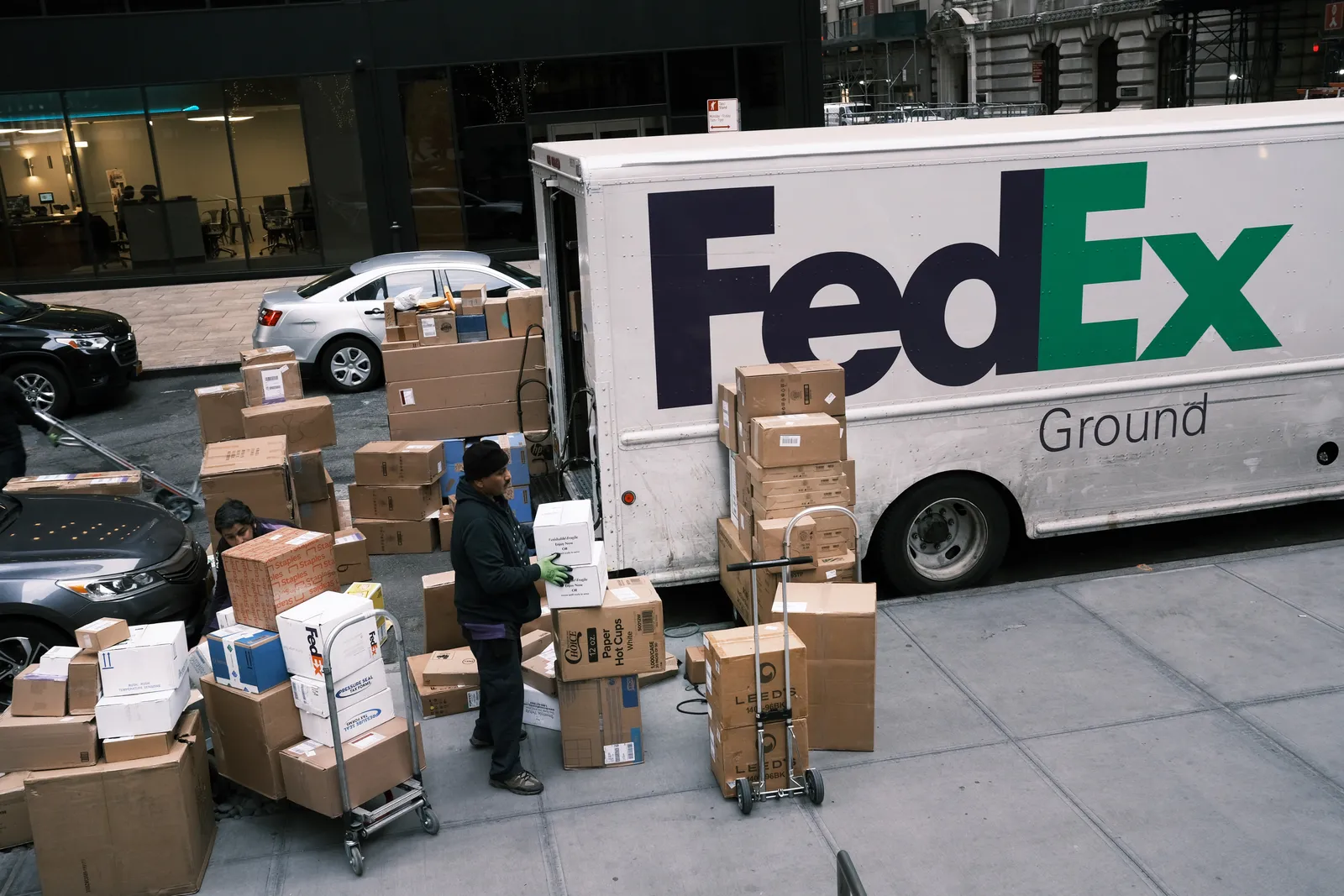
Ground has also made operational changes as pressure from contractors grows. Chief among them is the suspension of year-round Sunday home delivery coverage in certain markets, primarily areas with lower populations. The extra working day has added more operational strain and expense to contractors, as there wasn’t enough delivery activity to make it financially viable, contractors told Supply Chain Dive.
While moves like ending all Sunday deliveries "would be an enormous win" for both Ground and its contractors, Patton is pushing for other benefits that would offer contractors protections similar to franchisees. If those protections aren't offered, then Patton said he'll "explore the pathway" on whether contractors qualify as franchisees — sparking another fight between Ground and the businesses that power its network.
"The thought is, I want FedEx Ground to give us those benefits of being a franchisee without having to have a huge 50-state fight over whether we shouldn't be legally classified as franchisees or not," Patton said.



